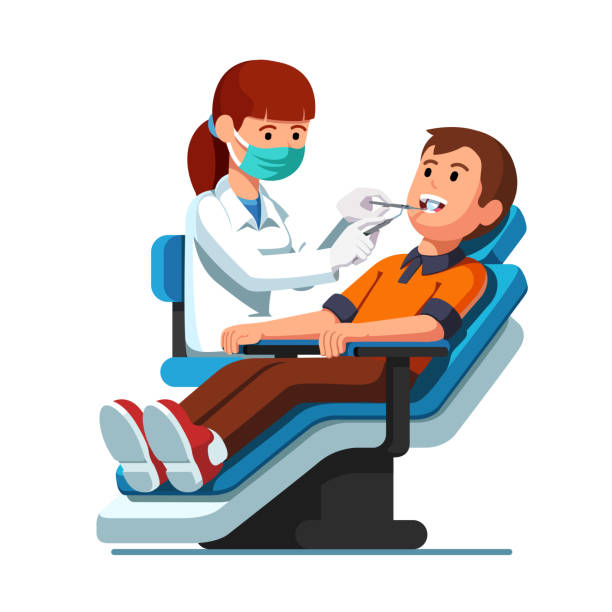Discover the Top Dentist Eugene Oregon Locals Depend On for Exceptional Treatment
Discover the Top Dentist Eugene Oregon Locals Depend On for Exceptional Treatment
Blog Article
A Guide to Common Dental Problems That Need a Dental expert's Care
Recognizing the range of dental problems that demand professional care is vital for keeping optimal oral health and wellness. Toothaches, as an example, can be symptomatic of severe issues such as tooth cavities, cracked teeth, or abscesses, each requiring details treatments like dental fillings or root canals. Periodontal condition, from the beginning of gingivitis to more serious periodontitis, highlights the relevance of normal oral exams and cleansings. Impacted wisdom teeth and jaw disorders can present significant discomfort and problems. Guaranteeing timely check outs to the dental practitioner can mitigate these concerns properly, but just what are the indications and treatments entailed?
Toothaches
Toothaches are a common oral condition that can vary from light pain to serious discomfort, often showing an underlying problem that calls for expert interest. This pain can stem from a variety of sources, including dental cavities, cracked or fractured teeth, and oral abscesses. Each of these conditions positions significant threats if left unattended, possibly leading to more extreme problems.
Oral dental caries, also recognized as caries, are created by the build-up of plaque that wears down tooth enamel, leading to holes or pits in the impacted teeth. Abscesses are agonizing infections at the origin of a tooth or between a tooth and the gum, normally resulting from severe decay or unattended dental caries.
Effective treatment of toothaches entails attending to the origin. This might consist of fillings for cavities, crowns for cracked teeth, or origin canals and prescription antibiotics for abscesses. Very early treatment by an oral professional can stop more degeneration and minimize discomfort, guaranteeing optimum dental health and wellness.
Gum Tissue Disease
Periodontal condition, a prevalent yet usually neglected dental problem, manifests via swelling and infection of the gums and supporting tissues. This problem mostly occurs in 2 stages: gingivitis and periodontitis. Gingivitis, the milder kind, presents with signs such as red, inflamed gum tissues that might bleed easily during cleaning or flossing. If left unattended, gingivitis can proceed to periodontitis, a more serious type identified by the devastation of the sustaining bone and connective cells, inevitably leading to tooth loss.
The main reason of periodontal illness is bacterial plaque, a sticky, colorless film that constantly bases on teeth. Poor dental health, smoking cigarettes, hereditary proneness, and particular medical conditions, such as diabetes mellitus, can worsen the risk of developing gum disease. Normal oral examinations are vital for very early detection and management of this condition.
Therapy for periodontal illness ranges from specialist oral cleaning and scaling to more advanced treatments like origin planing and periodontal surgery, depending upon the seriousness. Preserving good oral health methods, including cleaning two times daily, flossing, and utilizing an antiseptic mouth wash, can substantially decrease the risk of gum tissue illness and promote much healthier gums.
Tooth Cavities
Tooth cavities, also called cavities, are a common dental problem defined by the devastation of tooth enamel due to acid-producing microorganisms in the mouth. These bacteria prosper on sugars and starches from food and beverages, creating acids that progressively wear down the enamel, bring about tooth cavity development.
Early-stage cavities might not reveal symptoms, however as they proceed, they can trigger tooth pain, sensitivity to cold or warm, noticeable holes or pits in the see post teeth, and staining. If left untreated, tooth cavities can pass through deeper layers of the tooth, possibly resulting in serious discomfort, infection, and also tooth loss.
Stopping cavities includes a mix of good oral hygiene techniques and nutritional habits. Routine cleaning with fluoride tooth paste, flossing, and routine dental examinations are vital. Dental experts might likewise advise added safety nets, such as fluoride treatments and oral sealers, to secure teeth from degeneration.
Small tooth cavities can be resolved with oral fillings, which restore the tooth's structure. More innovative instances might require crowns or even root canal treatment if the decay has actually gotten to the tooth's pulp.

Impacted Knowledge Teeth
Influenced knowledge teeth are a prevalent dental problem that happens when the 3rd molars, commonly referred to as knowledge teeth, fail to completely arise or line up effectively within the mouth. This condition commonly arises from not enough room in the jaw or an uncommon development angle of the teeth. Affected knowledge teeth can lead to a selection of problems, consisting of infection, damages, and pain to nearby teeth.
When knowledge teeth end up being impacted, they are usually partially appeared or continue to be entirely beneath the gum line. This partial eruption can create a path for germs to go into the periodontals, resulting in infections that show up as swelling, discomfort, and even fever. In addition, affected knowledge teeth can put in stress on surrounding teeth, possibly creating crowding or shifting.
An extensive oral evaluation, commonly involving X-rays, is essential for detecting affected wisdom teeth. Normal oral exams are recommended to keep an eye on the condition and keep dental health.
Jaw Problems
Jaw conditions, jointly referred to as temporomandibular joint (TMJ) problems, include a series of conditions that impact the jaw joint and bordering muscle mass. These conditions can materialize with signs such as pain or inflammation here are the findings in the jaw, problem chewing, a read what he said popping or clicking sound when closing the mouth or opening, and even chronic frustrations. TMJ problems can develop from various variables, consisting of arthritis, jaw injury, or habitual habits like teeth grinding or jaw clenching.
Diagnosis of TMJ disorders generally involves an extensive assessment by a dental expert, consisting of a physical assessment of the jaw, oral X-rays, and occasionally progressed imaging strategies like MRI or CT checks to examine the joint's problem. Non-invasive methods such as physical therapy, oral splints, and medicines aimed at reducing inflammation and discomfort are usually first-line therapies.
Very early intervention by an oral specialist is vital to protect against the development of TMJ disorders and to maintain total oral health. People experiencing consistent jaw pain or disorder must seek prompt analysis and treatment.
Conclusion
Keeping dental health and wellness necessitates prompt specialist treatment to attend to typical dental problems. Toothaches often indicate underlying issues such as cavities, cracked teeth, or abscesses, requiring punctual intervention. Gum tissue disease, from gingivitis to periodontitis, needs routine oral examinations and cleansings to protect against progression. Influenced wisdom teeth and jaw problems likewise call for expert focus to ease pain and stop more issues. Regular dental visits are necessary for diagnosing and dealing with these problems, guaranteeing total dental health and wellness and health.
Dental cavities, likewise understood as caries, are triggered by the build-up of plaque that erodes tooth enamel, leading to holes or pits in the impacted teeth. Abscesses are unpleasant infections at the origin of a tooth or in between the gum tissue and a tooth, normally resulting from extreme degeneration or unattended dental caries.

Furthermore, impacted wisdom teeth can put in stress on neighboring teeth, possibly creating crowding or moving.
Report this page